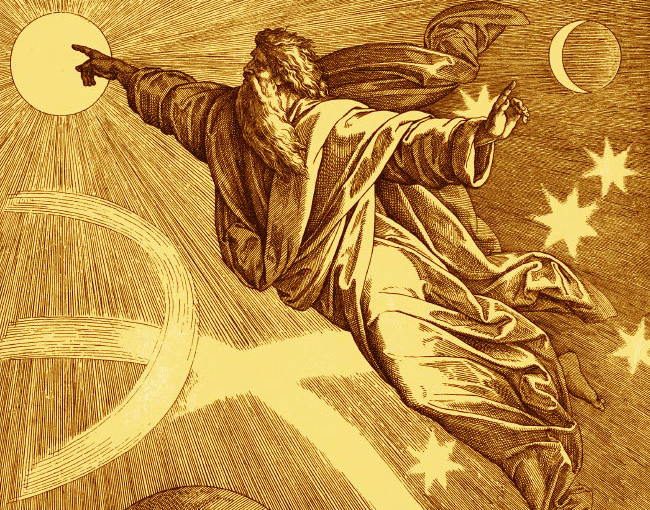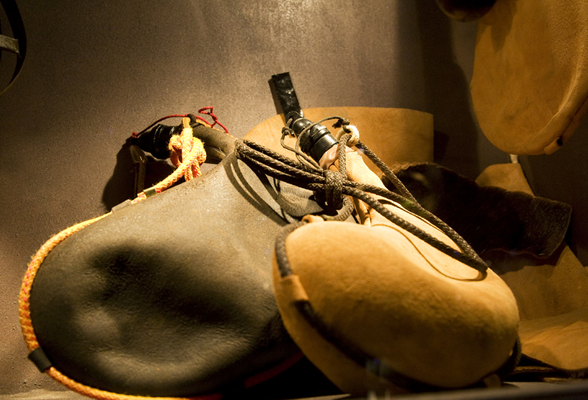One of the most exciting lines in today’s Liturgy of the Word comes in the second reading: “The One who sat on the throne said, ‘Behold, I make all things new.’” The book of Revelation is all about the persecution of the early Christians, and it looks forward to the day when God would put all that persecution to an end. People were dying for the faith, being forced to give it up or be cast out of the synagogues. That left them open to the persecution of the Romans who demanded that they take up the worship of their pagan gods or face death. They were a people looking for newness, healing, and re-creation. So it is with great hope, then, that John reports what is heard in his vision: “Behold, I make all things new.”
There is a clamor for newness, I think, in every age and society. We are a people who could use some re-creation even today. Look at the way our own faith is received. The voices of death have such a foothold that they have many faithful Catholics believing that babies can be aborted in favor of personal choice. Sunday family worship takes a further back seat to soccer games, baseball, and other activities, as if worshipping God were just one possible choice for the many ways people could spend the Lord’s day. Rudeness and hurtful language are used in every forum, and we call it entitlement. Prayer is not welcome in almost any public location, for fear that someone might be offended by our religiosity. Concern for the poor and needy, and a longing for peace and justice are bracketed in favor of capital gain. And that is to say nothing of those Christians in the Middle East, especially Syria, who face danger and death for living their faith. We Christians today are persecuted just as surely as the early Christians, whether we pay for it with our lives or not. We Christians today are in need of hearing those great words: “Behold, I make all things new.”
The good news is that as an Easter people, we can already see the newness that is God’s re-creation of our world. We know the story of our salvation: This world was steeped in sin and we are a people who, though created and blessed by our God, time after time and age after age turned away from our God. Every generation turned away in ways more brazen than the last. We are the heirs of that fickle behavior and we can all attest that our sins have led us down those same paths time after time in our own lives. But God, who would be justified in letting us live in the hell we seemed to prefer, could not live without us. So he sent his only Son into our world. He was born as one of us and walked among us, living the same life as ours in all things but sin. He reached out to us and preached the new life of the Gospel. And in the end, he died our death, the death we so richly deserved for our sins. And not letting that death have the last word in our existence, he rose to a new life that lasts forever. He did all that motivated by the only thing that could ever explain away our fickle sinfulness, and that motivation is love.
I give you a new commandment: love one another.
As I have loved you, so you also should love one another.
This is how all will know that you are my disciples,
if you have love for one another.
The love that Jesus is talking about here is not some kind of emotional infatuation that fades as quickly as it grows. It is not a love that says “I will love you if…” Perhaps you have heard it yourself: “I will love you if you remain faithful to me.” “I will love you if you are successful in school.” “I will love you if you meet all my own selfish expectations.” “I will love you if you ignore my imperfections.” “I will love you if you become more perfect.” But the kind of love that says “I will love you if…” is not love at all. If God loved us if… we would be dead in our sins and there would be no reason to gather in this holy place day after day. If God loved us if… we would have nothing to look forward to in the life to come.
No, God does not love us if… God loves us period. As we know, God is love. God is love itself, love in all its perfection. Love cannot be experienced in a vacuum, so God created us to love him and for him to love us. We are the creation of God’s love and God cannot not love us! The kind of love Jesus is talking about in today’s Gospel can only be summed up by the cross and resurrection. Jesus takes our sinfulness and brokenness upon himself, and stretches out his arms to die the death we deserve for our unfaithfulness. It wasn’t nails that held him to that cross, it was love, and we are totally undeserving of it. Even greater then, is the gift of the Resurrection in which we see that, because of love, death and sin have lost their sting. They no longer have the last word in our existence, because our God who is love itself has recreated the world in love.
And with this great act of sacrifice that restores us to grace, Jesus also gives those who would be his disciples a commandment: Love one another. Which sounds like an easy enough thing to do. But the second line of that commandment gives us pause and reminds us that our love can’t just be a nice feeling. He says to us: “As I have loved you, so you also should love one another.” And we know how he has loved us, don’t we? Whenever we forget, all we have to do is look at the nearest crucifix. Our love must be sacrificial. Our love must be unconditional. Our love cannot be “I will love you if…” but instead, “I love you period.” Our love must be a love that re-creates the world in the image of God’s own love.
We live in a world that is broken and dark and evil at times. But our God has not abandoned us. Taking our death upon himself, he has risen triumphant over it. In spite of our unfaithfulness, he has re-created us all in his love. So now we disciples must continue his work of re-creation and love the world into a new existence.
“Behold, I make all things new.”





You must be logged in to post a comment.